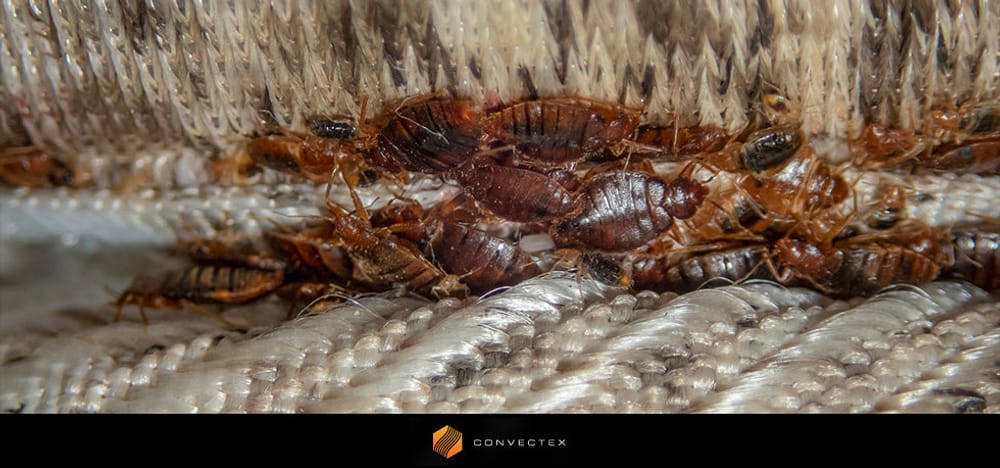Bed bug infestations seem to be more common every day, with reports coming in from all over the US and other areas of the world. To deal with them effectively,, we have to understand them and find out their habits. A major consideration is, what do they eat?
What are bed bugs?
Bed bugs are small, brownish, apple seed-shaped, and sized insects of the genus Cimex. They have been part of human experience for thousands of years, certainly dating back to the ancient world, and were brought to America by the first colonists.
They are not attracted by dirt but do like to hide away from the light in cracks and crevices particularly in and around your bed. Why? Because at night they come out to feed.
What do bed bugs eat?
The quick answer is us – their human hosts. There are many species of bed bugs but one thing they all have in common is feeding on blood. Often this is species-specific and while a bed bug might accept any blood it is often the case that without a particular source of blood they will not be able to reproduce.
For Cimex lectularius, that blood is human blood. Most bed bug infestations involve this species of insect; though occasionally it will be a related species usually carried by bats. However opportunistic these critters might be, for first, mains, and dessert it is your blood they want.
Generally, their bites are not medically harmful. Bed bugs are not known to transmit any disease to humans. For most of us, all we experience is an itchy set of small red spots, usually in a cluster or line on the face, neck, arms, and hands but not everyone is so lucky.
Why are bed bugs so bad to have in your home?
Although most people do not react to a bed bug bite, for others bed bugs pose much more of a problem and their bite can even be dangerous. Allergic reactions to their bite are not uncommon and the symptoms can include severe itching, blisters, and even hives.
Should someone be hyper-allergic to bed bugs it is possible that they will suffer anaphylaxis – their whole body going into shock, causing blood pressure to drop, skin rash, vomiting, and nausea. In the worst cases, it can even be life-threatening.
There is also the possibility of a secondary infection caused by the reaction to the bite. The result may be impetigo, ecthyma, or even infection of the lymph vessels (lymphangitis). None of this is good news.
Then there is the mental anxiety and broken sleep patterns brought on by living in an infested home. It can be almost impossible to relax when you know bed bugs are sharing your bed and feeding on your blood.
An infestation of bed bugs is not something to be ashamed of – they are no more attracted to a dirty person or home than they are a very clean one. All they care about is food – and that’s blood. But for all the reasons above, no one wants to live with them. Bed bugs are a parasite, their bites irritating at best and dangerous at worst. The best way to get rid of them is with a heat treatment.
There is no doubt that heat treatments are superior to chemical and can quickly stop an infestation in its tracks. It is easy to hire a heat treatment package to treat your home – to find out more about how you can treat the bed bugs, click here.

